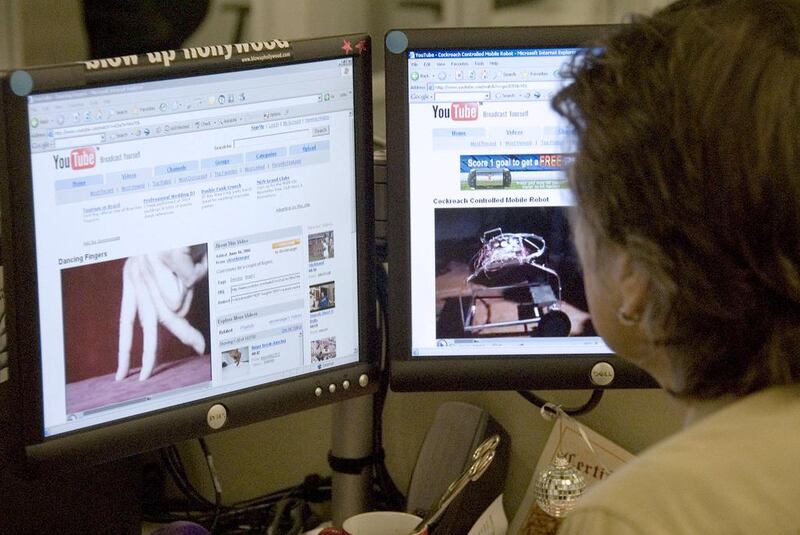If you’re reading this article at work when you should be doing something else, then the good news is that you’re far from alone.
Covert glances at The National during the working day are likely to be just one of your many distractions, with texts, news alerts, Facebook and Twitter messages contending with old-fashioned office gossip to draw attention away from actually doing what you're paid to do.
The concept of shirking off is certainly nothing new, but a new survey from the jobs website Bayt.com has found that as the number of screens multiplies, the temptation to succumb to distraction is increasing.
According to the poll, conducted online in October and November, 59.3 per cent of the 6,704 respondents from across the Middle East said that having their attention snatched away from work was a “big problem”.
Social media was thought to be the biggest cause of distraction with 24.7 per cent of respondents blaming Facebook, Twitter, Instagram and their like for their lack of productivity.
Many of the distractions admitted to by people in the region stemmed from serious concerns about events abroad likely to embroil family and friends such as the recent flooding in the Philippines or the civil war in Syria.
Nearly a third of those surveyed (31.2 per cent) said that their work productivity had been affected by “checking the news [from abroad] all day”, while 12.7 per cent said they felt “a general sense of anxiety” about events abroad.
Chatting and socialising with colleagues was the second biggest cause of keeping employees from work according to the survey, with 18.3 per cent of respondents ranking it as a top distraction.
News websites came third on the list with 10.2 per cent of those surveyed ranking them as a top distraction.
Of course, relying on an online survey on a jobs website to procure this information has its own pitfalls. Those who filled in the survey were likely to be searching for a new job and therefore to be less happy with their existing employment. Moreover, perhaps by filling in the survey in the first place respondents were proving that they were the sort of people likely to be distracted by unrelated tasks.
When asked how many of the respondents had completed the survey during working hours – thus providing yet another distraction – Bayt.com said it was unable to provide the information because of the anonymous nature of the survey.
When asked what could be done to reduce the amount of distractions, nearly a third of those surveyed (30.2 per cent) said they would benefit from a more professional work environment, while another 23.3 per cent blamed long hours and said they would be more likely to concentrate more on work if they had a better work/life balance. A fifth (21.4 per cent) said they would like more challenging work to keep them occupied.
“Distraction is definitely not a problem only affecting the Middle East and North Africa but the entire world,” said Suhail Masri, the vice president of sales at Bayt.com. “It is interesting that a fifth of respondents would like more challenging work to be less distracted, and that a further quarter claim that a better work-life balance would result in less distractions. This points to the fact that more can be done by employers around the Middle East and North Africa to make their employees more satisfied at work.”
Now stop reading and get back to work.
lbarnard@thenational.ae





